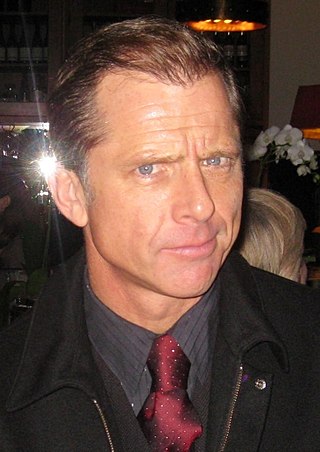
Maxwell Caulfield is a British actor. He has appeared in Grease 2 (1982), Electric Dreams (1984), The Boys Next Door (1985), The Supernaturals (1986), Sundown: The Vampire in Retreat (1989), Waxwork 2 (1992), Gettysburg (1993), Empire Records (1995), The Real Blonde (1997), The Man Who Knew Too Little (1997), and in A Prince for Christmas (2015). In 2015, Caulfield toured Australia with his wife Juliet Mills and sister-in-law Hayley Mills in the comedy Legends! by Pulitzer Prize winner James Kirkwood. He voiced James Bond in the video game James Bond 007: Nightfire (2002).

Randall and Hopkirk (Deceased) is a British private detective television series, starring Mike Pratt and Kenneth Cope respectively as the private detectives Jeff Randall and Marty Hopkirk. The series was created by Dennis Spooner and produced by Monty Berman, and was first broadcast in 1969 and 1970. In the United States, it was given the title My Partner the Ghost.

Alan John Clarke was an English television and film director, producer and writer.
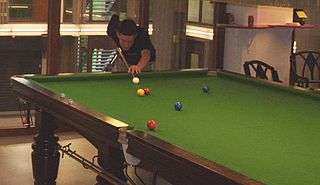
Baize is a coarse woollen cloth, similar in texture to felt, but more durable.
Philip William "Phil" Daniels is an English actor, musician and singer, most noted for film and television roles playing Londoners, such as the lead role of Jimmy Cooper in Quadrophenia, Richards in Scum, Stewart in The Class of Miss MacMichael, Danny in Breaking Glass, Mark in Meantime, Billy Kid in Billy the Kid and the Green Baize Vampire, Kevin Wicks in EastEnders, DCS Frank Patterson in New Tricks, and Grandad Trotter in the Only Fools and Horses prequel Rock & Chips. He is also known for featuring on Blur's 1994 hit single "Parklife".
Bruce Martyn Payne is an English actor, producer, screenwriter, film director and theatre director. Payne is best known for portraying villains, such as Charles Rane in Passenger 57, Jacob Kell in Highlander: Endgame, and Damodar in Dungeons & Dragons and Dungeons & Dragons 2: Wrath of the Dragon God.
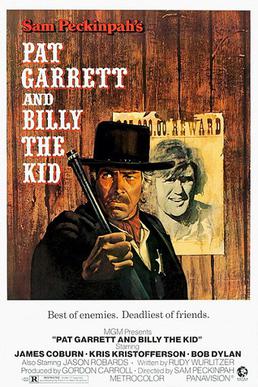
Pat Garrett and Billy the Kid is a 1973 American revisionist Western film directed by Sam Peckinpah, written by Rudy Wurlitzer, and starring James Coburn, Kris Kristofferson, Richard Jaeckel, Katy Jurado, Chill Wills, Barry Sullivan, Jason Robards, Slim Pickens and Bob Dylan. The film is about an aging Pat Garrett (Coburn), hired as a lawman by a group of wealthy New Mexico cattle barons to bring down his old friend Billy the Kid (Kristofferson).

Alan Armstrong, known professionally as Alun Armstrong, is an English character actor. He grew up in County Durham in North East England, and first became interested in acting through Shakespeare productions at his grammar school. Since his career began in the early 1970s, he has played, in his words, "the full spectrum of characters from the grotesque to musicals... I always play very colourful characters, often a bit crazy, despotic, psychotic".

The Screen Actors Guild Award for Outstanding Performance by a Male Actor in a Supporting Role in a Motion Picture is an award given by the Screen Actors Guild to honor the finest acting achievements in film.
This is a summary of 1985 in music in the United Kingdom, including the official charts from that year.
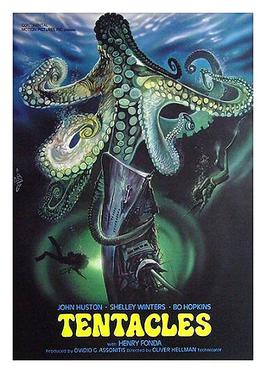
Tentacles is a 1977 horror-thriller film directed by Ovidio G. Assonitis and starring John Huston, Shelley Winters, Bo Hopkins, Cesare Danova, Delia Boccardo and Henry Fonda.

Scum is a 1977 British television play written by Roy Minton and directed by Alan Clarke. It was intended to be screened as part of the Play for Today series. Instead the production was banned by the BBC after it was completed in 1977, and not aired until BBC 2 showed it on 27 July 1991. In the interim, a theatrical film version was released in 1979. The original version features Ray Winstone, John Blundell, David Threlfall, Martin Phillips, Phil Daniels and Davidson Knight.
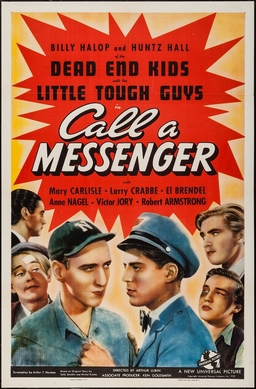
Call a Messenger is a 1939 Universal Studios film that starred Billy Halop and Huntz Hall of the Dead End Kids and several of the Little Tough Guys. It was directed by Arthur Lubin.
Zenith Productions was a British independent film and television production company. Zenith created content for the BBC, ITV, Channel 4, Sky and UKTV, including a number of series such as Inspector Morse for ITV and Byker Grove and Hamish Macbeth for the BBC. Through its subsidiary Blaze Television, Zenith produced the Saturday morning series SMTV Live and CD:UK for ITV featuring Ant & Dec. The company ceased trading in 2006.

Screen One is a British television anthology drama series, produced by the BBC and distributed by BBC Worldwide, that was transmitted on BBC One from 1989 to 1998. A total of six series were broadcast, incorporating sixty individual films, several of which were broadcast as stand-alone specials. The series was born following the demise of the BBC's Play for Today, which ran from 1970 to 1984. Producer Kenith Trodd was asked to formulate a new series of one-off television dramas, the result of which was Screen Two, which began broadcasting on BBC2 in 1985. However, while Play for Today's style had often been a largely studio-based form of theatre on television, Screen Two was shot entirely on film. Three of the episodes won the BAFTA TV Award for Best Single Drama.
Geoff Foulds is an English former professional snooker player. He is the father of fellow professional snooker player Neal Foulds.
Trevor Preston (1938-2018) was a British screenwriter. He wrote the series Out and created the series Ace of Wands. He also wrote a 1976 TV movie adaptation of James and the Giant Peach. in 1981 he received the Bafta Television Writers' Award for the TV series Fox.
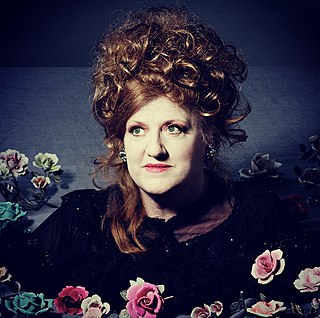
Eve Ferret is a British actress, comedian, and singer-songwriter known for her work on the films Haunted Honeymoon (1986), Absolute Beginners (1986), and EastEnders (2019).












